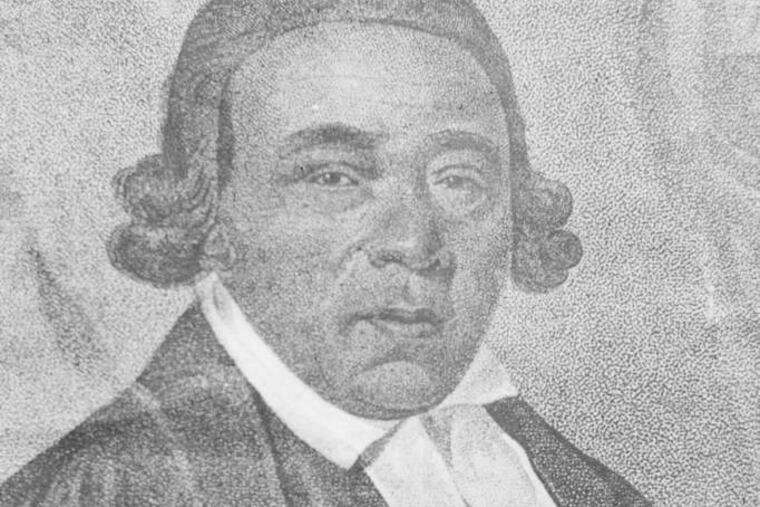Absalom Jones, from slavery to church leader
'That separate and distinct churches for colored people are now established here, and in different parts of the country, is a fact," begin the 1861 Annals of the African Episcopal Church of St. Thomas. Yet this fact was not always so firm.

'That separate and distinct churches for colored people are now established here, and in different parts of the country, is a fact," begin the 1861 Annals of the African Episcopal Church of St. Thomas. Yet this fact was not always so firm.
During most of Absalom Jones' life (1746-1818), there existed no church edifice owned or operated exclusively by African Americans anywhere in the country. By the end of Jones' life, however, many black churchgoers could proudly call houses of worship their own.
Born a slave in Delaware, Jones originally carried the surname of his first master: Wynkoop. As a young boy, he tended the fields of the Dutch family's Sussex County farm before working in their home.
"I was small when my master took me from the field to wait and attend on him in the house," he would recall. "I was careful to save the pennies given to me by the ladies and gentleman from time to time. I soon bought myself a primer, and begged to be taught by anybody that I found able and willing."
Jones' master, Benjamin Wynkoop, soon decided that he'd had enough of farm life - though Wynkoop had never done any of the actual farming. After selling the boy's mother and six siblings, the aspiring merchant headed to Philadelphia with the 16 year-old Jones in tow.
Soon after Wynkoop freed him in 1784, Jones became an active member of St. George's Methodist Episcopal Church, on Fourth Street, proving to be an adroit lay preacher for the growing black membership.
White congregants, however, soon grew leery of the increasing number of blacks present during their services. While Jones and other black members were kneeling in prayer, they were asked to leave the main floor of the church to accommodate white parishioners.
A witness of the scene recorded: "We had not been long on our knees before . . . I raised my head up and saw one of the trustees having hold of Absalom Jones, pulling him up off his knees, and saying, 'You must get up - you must not kneel here.' . . . Mr. Jones replied, 'Wait until prayer is over, and I will get up and trouble you no more.' "
Jones made good on his promise. Along with his friend Richard Allen - who went on to found Mother Bethel African Methodist Episcopal Church - Jones decided to chart a new spiritual course.
Shortly after leaving St. George's, Jones cofounded the Free African Society with Allen. In 1792, he expanded the society into the African Church.
After the organization proved evangelically successful, the Episcopal Diocese allowed Jones to join, and soon he was a priest in the African Episcopal Church of St. Thomas, the first of its kind in the country.
Jones' leadership extended far beyond matters of religion. He worked with Allen to petition the Pennsylvania legislature and Congress for the abolition of slavery as early as 1799. The Female Benevolent Society and African Friendly Society both bear marks of his influence.
Absalom Jones died at his home in Philadelphia, at 32 Powell St., on Feb. 13, 1818, a date commemorated on the Episcopal Church's calendar of saints.